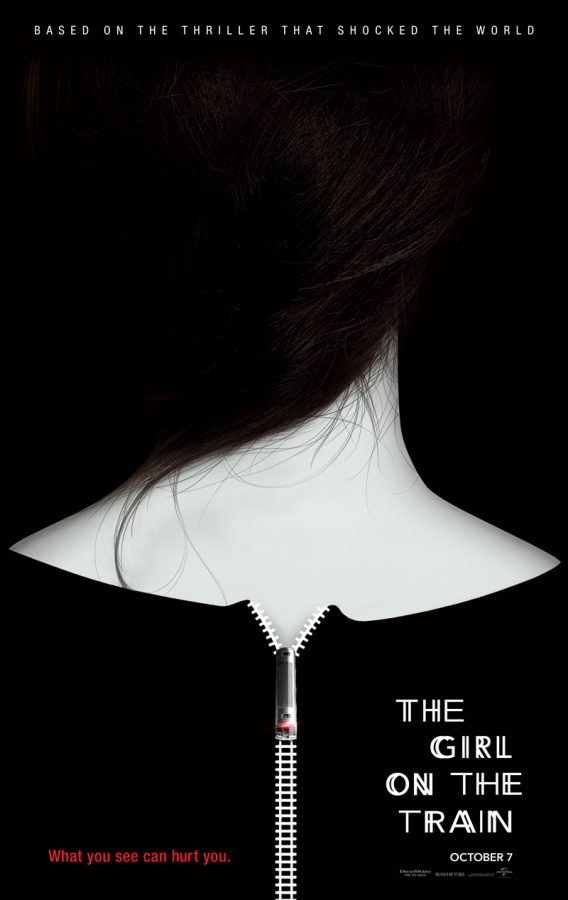“Girl on the Train” barely leaves the station
Film isn’t always easy to decipher; Sometimes an unskilled director will fail to properly convey meaning, leaving their work muddled and uneven. Other times, directors will intentionally choose to muddy their ideas with convoluted metaphors and abstract imagery in order to build a more complex and engaging experience. This is what made David Lynch famous. Both of these types of film can be fun in their own right, providing the viewer with puzzles and ideas to run through, sometimes intentionally, sometimes not. However–it’s not uncommon for the opposite to take place. Some films fail to express ideas, and others forget to assign purpose to themselves. What remains is more of a void– a time sink with little fun to be had, or thought to be given. “The Girl on the Train” is this sort of film.
Our story focuses on three women, who find their lives somehow connected. The first is Rachel (Emily Blunt), a depressed divorcee and extremely dysfunctional alcoholic. She longs for her married life, leaving her extremely jealous of Anna (Rebecca Ferguson), her ex-husband’s new wife. Finally, there’s Meghan (Haley Bennett), a distant object of admiration and fantasy for Rachel, and a nanny for Anna’s daughter. A night of heavy drinking causes Rachel to black out, and upon waking up, she finds herself in bed, covered in blood and bruises. Soon, Rachel is thrust headfirst into the mystery of Megan’s sudden disappearance, and devotes herself to making things right. What follows is a story of lies, adultery, violence, and addiction, and, well, a lot of nothing.
“The Girl on the Train” is a very insular film. It tells its story; it comes together in an unexpected and decently satisfying way, and ties up nicely. Despite all this, however, I can’t help but feel that it was sort of hollow. There really is very little take away this movie. The story is specific and not very applicable to everyday life, its themes are rote and fail to say anything remotely insightful, and the whole thing is so unrelatable that I couldn’t really feel anything in the end. The whole movie feels so thin that its drama comes across as sort of silly, like robots were running through human actions but failing to get them right. Despite how decently built the movie is, I found myself laughing at its conclusion. Something just fails to connect.
For all my gripes, I wouldn’t call “The Girl on the Train” bad. It’s the ghost of a good mystery-thriller. The three main actresses all put on fantastic performances, the direction is artistic, poignant, and effective, and the story is confidently and (almost )smartly written. It feels like someone handed a Lifetime script to a competent writer, who then passed the movie on to a good director. The initial empty melodrama is still there, but it’s largely obscured by lacy symbolism and efficient character writing. When the dust settles, what is left really isn’t that bad of a watch.
“The Girl on the Train” is a good movie built around a vacuous core. It’s base lack of thought shows through, but the spectacle built atop almost make up for it. It feels successful in spite of itself. That sense makes for a pretty easy watch though! It’s a very watchable thriller with good technical aspects all around, and even if it fails to land its emotional blows, it is a really hard movie for me to dislike. It’s doing so much right even when so much of it is done wrong. Based on what’s in theatres right now, I actually do recommend seeing “The Girl on the Train.” It may not be a stunning endorsement, but you really could do much worse.


